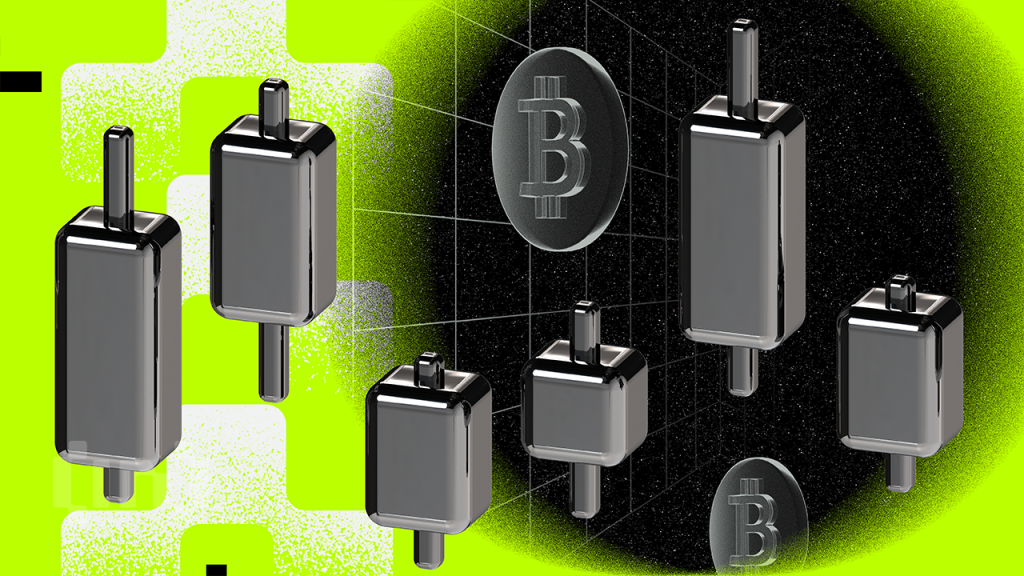5 Blockchains Enhancing Bitcoin Capabilities

Bitcoin is the most valuable cryptocurrency, yet by design, it has limitations keeping it from reaching its full potential. However, several blockchains are working to enhance the network to create specialized systems that offer enhanced security, scalability, and functionality. In this article, we’ll take a look at five projects that are building on top of Bitcoin to achieve next-level capabilities.
Why Build on Bitcoin?
Projects aim to unleash Bitcoin’s potential – because while the blockchain is the first and most well-known cryptocurrency – it does have limitations in terms of scalability, and utility.
For example, the current transaction processing capacity of the Bitcoin network is limited, and transactions can take longer to confirm compared to other blockchain networks. In addition, Bitcoin’s blockchain is transparent, meaning that all transaction details are publicly visible, which can pose privacy concerns for users.
Furthermore, Bitcoin’s scripting language is limited, which makes it difficult to create smart contracts and decentralized applications. Therefore, projects are building on top of Bitcoin to enhance its capabilities and address these limitations, such as improving scalability, privacy, and functionality.
In short, the goal is to improve Bitcoin’s capabilities to add versatility and efficiency to the blockchain network to meet the demands of users and investors.
Stacks: Building a Decentralized Internet
Formerly known as Blockstack, Stacks is a platform that wants to create a more secure and decentralized internet. By using Bitcoin as a foundation, Stacks aims to leverage its security and immutability features while offering enhanced functionality and scalability. The platform enables developers to create decentralized applications and smart contracts while ensuring that user data remains under their control.
Co-founder Muneeb Ali believes Bitcoin is the most secure blockchain and has positioned Stacks as a platform for the development of the decentralized internet.
Rootstock: A Smart Contract Platform
Rootstock (RSK) is working with the Bitcoin network to increase adoption. RSK is a smart contract platform that enables developers to create decentralized applications that are compatible with Bitcoin.
By using Bitcoin as its foundation, RSK offers enhanced interoperability, making it a promising option for developers looking to build on top of the Bitcoin blockchain. Additionally, RSK is focused on promoting financial inclusion and providing access to financial services to underserved populations.
Komodo: Customizable and Interoperable
Komodo enables developers to create custom blockchains that provide robust security and privacy features. Using Bitcoin as a foundation, Komodo offers interoperability with other blockchains, making it a versatile option for developers looking to build decentralized applications (dApps).
Additionally, Komodo enables developers to create custom consensus mechanisms and transaction models, making it a highly customizable option for blockchain development.
One area of disruption is the much-maligned and antiquated voting system, especially in the United States. Indeed, voting in the US hasn’t changed much since the Civil War. People often stand in line for hours and then must fill out complex paper ballots. Even then, it often takes days or weeks to determine a winner. Komodo seeks to change that.
Mintlayer: Bringing DeFi and Smart Contracts to Bitcoin
Mintlayer (MLT) is a Layer-2 protocol that enables developers to build DeFi, dApps, and smart contracts on Bitcoin. By providing infrastructure and tools, Mintlayer lays the foundation for pushing the limits of Bitcoin and realizing its full potential.
Interoperability with Bitcoin Network
Mintlayer is the first DeFi/Bitcoin platform with direct interoperability with the native Bitcoin network. Its DEX for atomic swaps provides security against counterparty risk and certainty for users.
Scalability on the Bitcoin network is improved with Mintlayer’s UTXO model and signature aggregation.
The UTXO model facilitates P2P (peer-to-peer) transaction batching, allowing users to batch multiple token transactions into one transaction. The signature aggregation compresses payment sizes by up to 70%. This prevents network congestion – a common complaint with Bitcoin and Ethereum blockchains.
Liquid Network: Scaling and Enhancing the Bitcoin Blockchain
Liquid Network is a sidechain protocol that runs on the BTC blockchain, serving primarily cryptocurrency traders, institutional investors, and exchanges. Developed by Blockstream, the network facilitates fast, private, and secure issuance, exchange, and transfer of assets on the BTC network.
Improving Transaction Processing with Signed Blocks
Liquid leverages signed blocks, which speed up transaction processing and validation. Making it ideal for arbitrage traders who perform rapid cross-exchange trades to make profits. Blocks are confirmed within two minutes, in contrast to the ten minutes required on the Bitcoin blockchain.
Liquid Network’s confidential transactions conceal key transaction data from third parties, making it visible only to direct participants. This feature enhances transaction privacy and reduces concerns about third-party monitoring for large-scale transactions.
Liquid’s higher throughput limits network congestion. This ensures lower transaction costs, making it more accessible to retail and institutional investors. With Liquid Network, they can trade BTC at low transaction costs while leveraging Bitcoin’s security and liquidity.
In addition to its primary features, Liquid introduces tokenization, interoperability, and programmable functionality to the Bitcoin blockchain. These features enhance Bitcoin’s capabilities, allowing it to compete with newer Layer 1 technology like Ethereum, Solana, and Cardano.
Final Thoughts
The rise of blockchains building on Bitcoin is a vital development for the blockchain industry and more importantly, for consumers. By employing the security of Bitcoin, these companies are able to create systems that offer enhanced functionality. Innovative blockchains are taking the most valuable cryptocurrency to the next level by offering more specialized features, likely increasing its adoption and value as a network.
Disclaimer
All the information contained on our website is published in good faith and for general information purposes only. Any action the reader takes upon the information found on our website is strictly at their own risk.















